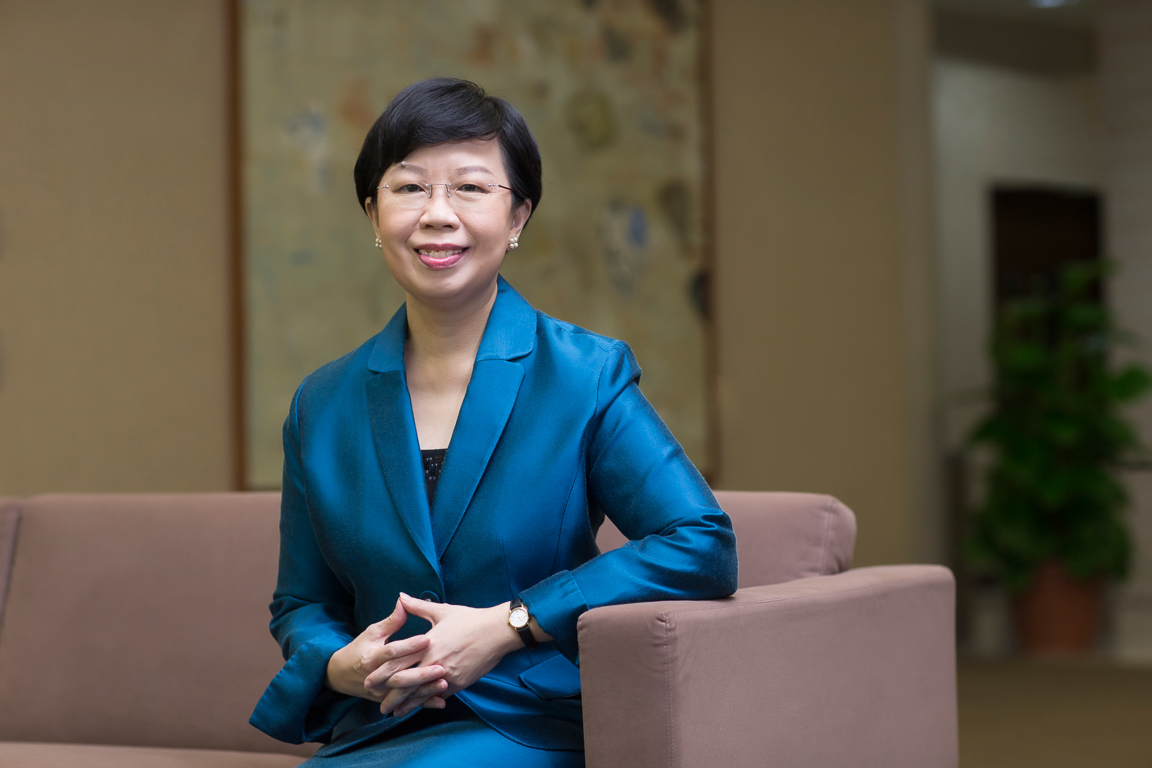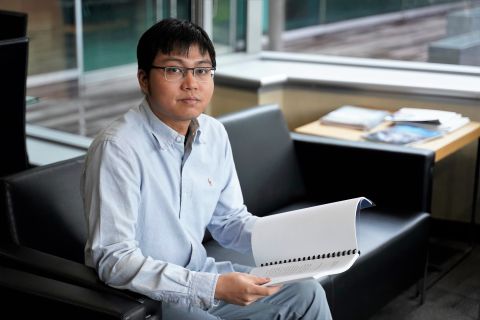
By Alvin Lee
SMU Office of Research & Tech Transfer – When assessing the quality of academic research, it has become commonplace to examine the number of times an academic’s work is cited in academic literature – ‘citation data’ – and the journals in which the work appears. While recognising the well-established academic practice, Professor Lily Kong, Singapore Management University (SMU) President and Lee Kong Chian Chair Professor of Social Sciences, prefers to emphasise the importance of research addressing real-world issues, and making an impact on business, government and society.
“Research is about pushing the boundaries of ideas, but it is also about the difference it makes for real people, and that’s where our contributions to economy, society and polity matter,” Prof Kong told the Office of Research and Tech Transfer. Framing SMU’s research ambitions in terms of tackling the five societal challenges, she elaborated on the pursuit of research grants and citation counts as just a means to an end.
“I’d rather like to get us back to first principles about why we do research. The best universities in the world that do research frame their research questions in these terms: ‘what is that challenge in our city or country or the world that we are trying to address?’ It could be food security. It could be trans-boundary pollution. It could be responsible finance. It could be multi-cultural societies. It is not about which journals are highly ranked as the first order of consideration. Not that it is unimportant to publish well in highly regarded journals, but this is almost a ‘by-product’ of the outstanding research!”
Crossing disciplines to solve bigger issues
President Kong wants to encourage colleagues to think of the big societal challenges that confront Singapore, the region and the world, and to this end, made this exhortation: “We must be ambitious not to ask small questions but to ask the really big questions that will require multiple perspectives, multiple disciplinary theories and ideas to help address them.” She reminds us of the five societal challenges: Interpreting Economies & Financial Markets; Strengthening Social Fabric & Quality of Life; Navigating Boundaries & Borders; Managing for Sustainability; and Advancing Innovation & Technology. But she is quick to add that these are not meant to be a straitjacket, nor that colleagues cannot pursue other research questions. They are, in her words, “a nudge” to colleagues to “think in these sorts of terms”.
To support colleagues in these endeavours, she shared that SMU has been putting in place appropriate infrastructure to support colleagues with the ambition to dive into research in these sorts of areas.
“As academics, we get so deeply involved in a particular subject or a slice of a topic, we keep drilling down and down and often don’t surface,” said Prof Kong. “What we are now trying to do is put in place the intellectual infrastructure to help people surface and think about how their specific research question is contextualised within the larger frame of societal needs.
“We’ve done that by way of putting in place reviewers who look at grant applications, who say, ‘Hang on a second. You’re drilling away, come up for air and look at how that relates to a bigger societal question. And think: if the person who is reading the grant is not a specialist in your specific area, is he or she going to understand what you’re saying?’
“It’s that kind of intellectual infrastructure to help colleagues to frame their research questions on larger canvases and learn to write grant applications in ways that are compelling.”
An example of that would be the S$4.5 million grant that the School of Law (SOL) and the School of Information Systems (SIS) secured from the National Research Foundation and Infocomm Media Development Authority (IMDA) in September 2018. The grant helped launch the Centre for AI and Data Governance, which will help government efforts to “encourage the industry adoption of AI and the roll out of products and services using AI in an accountable and responsible manner”.
In the same spirit of collaboration between the School of Law and School of Information Systems where the expertise across disciplines is brought to bear on a bigger issue, Prof Kong sees similar opportunities with the study of ageing. An example would be the SHINESeniors study that deals with ageing and quality of life. She elaborated:
“Within the societal challenge of “strengthening quality of life”, the study of ageing is a key endeavour. While SMU colleagues have focused particularly on one dimension – and that’s the economics of ageing –there are so many other dimensions of that, some of which other colleagues are picking up on and diving into.
“For instance, psychologists could study the individual psyche of ageing. Our humanities scholars seek to understand how faith-based organisations help elderly people cope with ageing.
“Our colleagues in marketing could be picking up on that as well: how do you deal with retail for a silver population? Even while we’re talking about e-retail taking over the mom-and-pop shops and so forth, is it really for all sectors of the population? What about the elderly population? How do we reach out to them? How do we help them navigate the world in terms of technology in the retail space?”
Growth, institutional and personal
Prof Kong, who became SMU’s fifth President at the beginning of 2019, drew parallels between her thinking about how research needs to address broader societal challenges and her own professional growth as an academic, and eventually, university leader. What started as intellectual curiosity – “I studied [Singaporean musician] Dick Lee and his impact in Japan just because I was interested in it” – grew into something with wider implications.
“As I got into university management I had to address policy issues within the university,” she recounted. “That began to frame my thinking about my own research: How is my research impacting policy? How is my research impacting community groups?
“When I was asked a government agency the question of whether we had sufficient religious places in Singapore to cater to the needs of the population, I started to ask myself, ‘How do I use the knowledge that my research has produced, to turn that into something that is useable?’
“So it was both a personal journey of getting into university management as well as being approached by agencies and asked particular questions that made me think, ‘How do I turn my research beyond intellectual contributions to make a difference to the community?’”
As SMU approaches its third decade, the advice SMU’s President would give to young academics is different for faculty at different stages. Prof Kong explained: “For an early career scholar, I would say, ‘Do the work that speaks to your discipline. Earn your badges within your own disciplinary field. It’s not just a pragmatic consideration. It’s about honing your disciplinary lenses. It’s about developing your theoretical muscle.’
“But I really hope to see our colleagues, as they progress to associate professorship and definitely into professorship, asking the bigger questions that no single discipline is going to be able to address.”
She added: “Some people are good at… highly theoretical research while others are much better at doing research that has an interface with the public. At the same time you also have colleagues who are deeply committed to education, the enterprise and mission of education.
“If I were to think about research, teaching, and service, it’s about balance. It’s balance of different strengths that people have in different areas, and how do we harness that and let everyone rise to their full potential.”
Back to Research@SMU February 2019 Issue
See More News
Want to see more of SMU Research?
Sign up for Research@SMU e-newslettter to know more about our research and research-related events!
If you would like to remove yourself from all our mailing list, please visit https://eservices.smu.edu.sg/internet/DNC/Default.aspx

